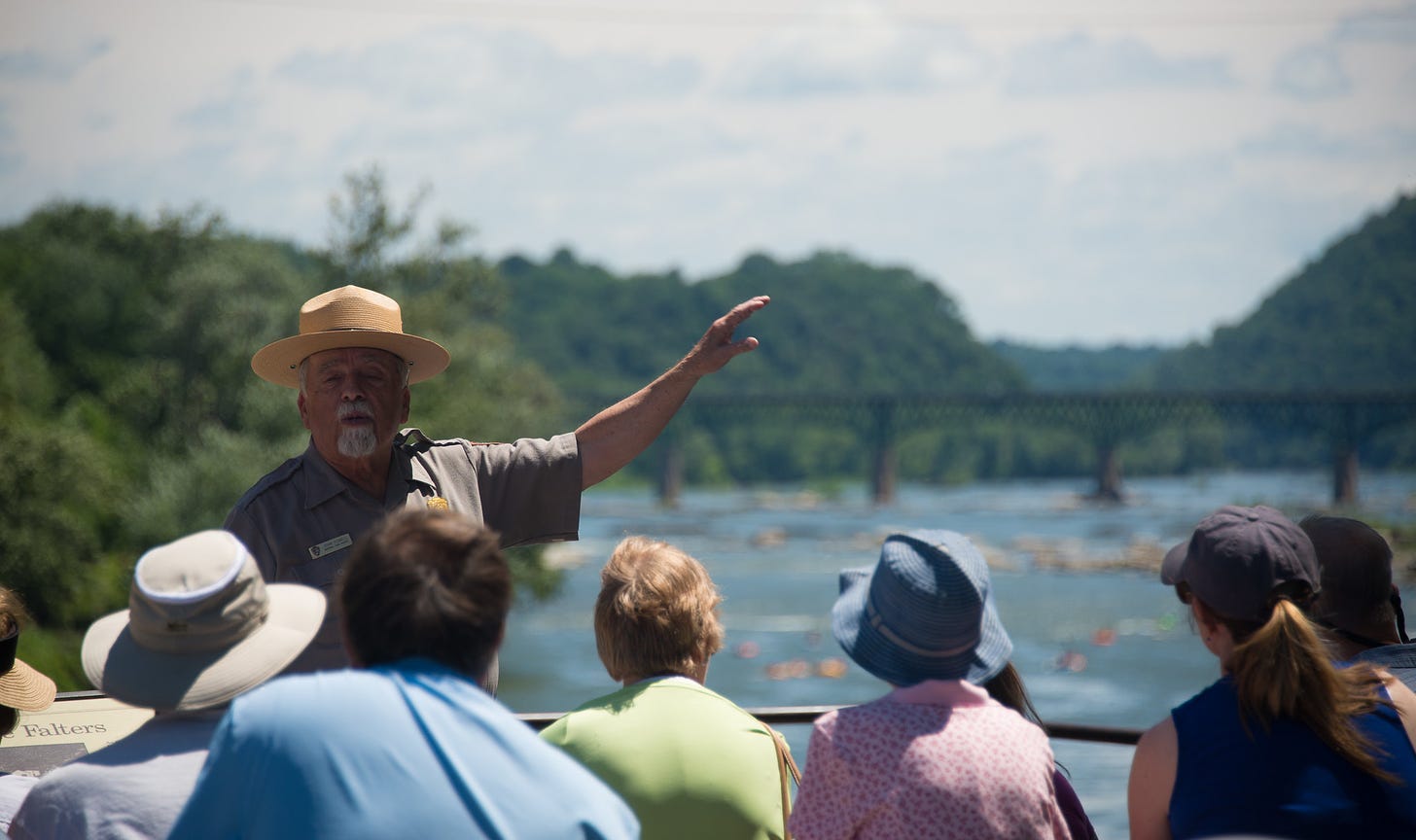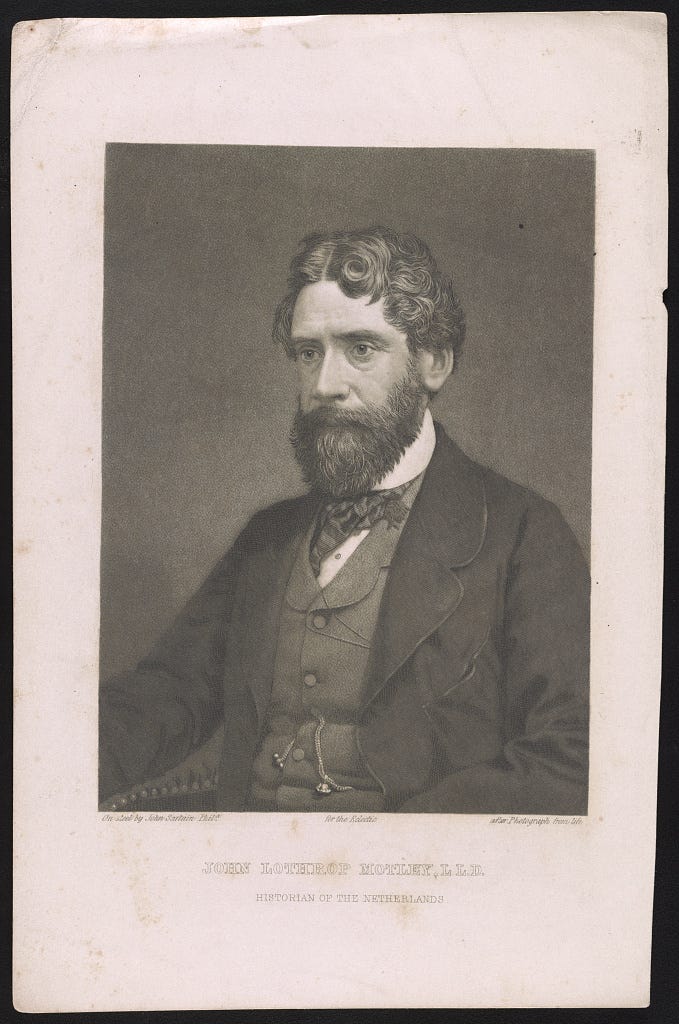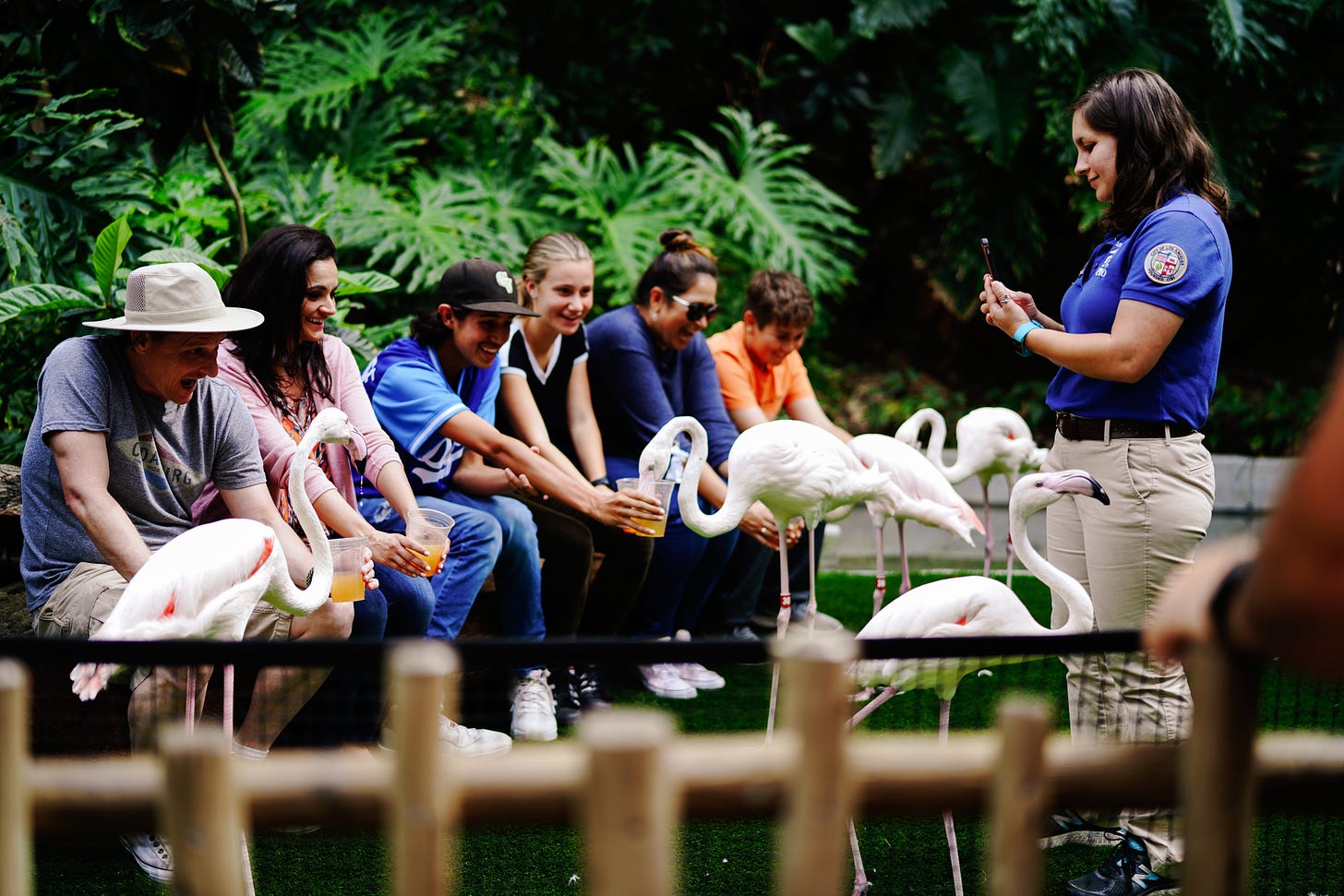Last week I had the privilege of participating in a panel about the history of elections and voting in Alexandria, Virginia. My role was to provide historical context to some of the current discussions in the city relating to when elections are held and how they are conducted. My fellow panelists (a representative of the James Wilson Institute as well as the President of the Alexandria NAACP) discussed the various options available to the city like adopting a ward system, moving the date of local elections, and ranked-choice voting. There was a good amount of debate, but also some agreement, and the discussion remained civil. My job wasn’t to take a side, although I made historical arguments and, in a few instances I did take concrete policy positions when appropriate. I’d invite anyone interested to check out the full conversation, which is available on YouTube.
Why did Agenda Alexandria specifically seek out historians for this panel? The reason they gave me was that they wanted to be able to offer more historical context to some of the ongoing debates. A historian would, in theory, provide information about the past that would educate and entertain the audience, while also helping them understand the issues being debated. The event was a learning experience for me too. I got to interact with a new audience and hear the perspectives, ideas, and arguments of my fellow panelists.
Conducting research and then disseminating and interpreting said research to the public is the definition of a public historian. Reflecting on the event, it struck me that many people might not know that historians can provide these services, or might not even know what a public historian even is. History’s Confluences is almost a year old, so I figured that it was time for a bit of an explainer of what a public historian is and the work that we do.
An Expansive Definition
When most people think of a historian, they picture what is often described as an academic historian. Someone who works at a college or university who has a specific research focus and writes books and papers geared towards other academics. A public historian, by contrast, is a historian who works directly with or for…wait for it… the public. Yes, not a super helpful answer. The National Council on Public History doesn’t have a great definition of what a public historian is, but they do have a pretty good list of who public historians are:
Public historians come in all shapes and sizes. They call themselves historical consultants, museum professionals, government historians, archivists, oral historians, cultural resource managers, curators, film and media producers, historical interpreters, historic preservationists, policy advisers, local historians, and community activists, among many many other job descriptions. All share an interest and commitment to making history relevant and useful in the public sphere.1
For myself, I define a public historian as anyone who is doing historical research in pursuit of communicating said research to an audience outside of academia. An exhibit content creator reviewing primary sources for an exhibit? Public historian. A guide at a historic site going above and beyond the tour outline they received to ensure that their program is relevant, engaging, and accurate? Public historian. A genealogist researching their family’s past to share with friends and community members? Public historian. Not everyone will agree with this definition, but for me, the type of work someone does and how they go about doing it is more important than any formal title or degree.

So what type of products do public historians create? It varies. Traditional museum exhibits or books pitched to a general audience certainly qualify, but work products can also include databases that make historical sources easily accessible and understandable, walking tours of historic areas, a report that answers clients’ questions, oral history transcripts, smartphone apps, online exhibits, or an outdoor historical marker or wayside. The products that public historians create, much like the topics they research, are vast, varied, and constantly evolving.
Overlapping Roles
I once had to review the papers of Dorothea Dix, the famous 19th-century reformer. Dix’s handwriting was…not great, and she had an unfortunate tendency (although not unique to her) to fill a page, turn it 90 degrees, and then keep writing so that the lines of words often overlapped with each other.2 Much as the lines of Dix’s handwriting tend to blend together in the reader’s eyes, so too does the distinction between academic and public historians often appear difficult to see to someone outside of the field (and sometimes to those of us in the field too). As it stands, many academic historians do work that connects with the public. They advise on exhibits, write books intended for general, rather than academic, audiences, give public talks, or do consulting work for government agencies, non-profits, or companies. Heather Cox Richardson is a professor at Boston College, but is also one of the most popular authors on Substack, with her publication Letters From an American reaching over 300,000 people.3 Bret Devereaux is an adjunct professor at the University of North Carolina Chapel Hill, but his public-facing blog A Collection of Unmitigated Pedantry is his main source of income.4
While some academic historians also do public history, some public historians do academic work. Several of my current and former coworkers will teach the occasional college class, even though history consulting for clients is their main job. So someone can do both academic and public history over the course of a career. There also are full-time professors in public history programs who write articles about public history for other practitioners. The line between academic history work and public history work is a blurry one.
All About the Audience
One big difference between academic history and public history is the audience. For academic research products, the audience, even for a book that might be available to a general audience, is typically other academics. This gives the writer a sense of what the tone should be, what level of sophistication is appropriate, and what any major critiques or arguments will be. With public history, the audience is constantly shifting depending on the project and the product. When I used to give tours at historic sites, I had to discuss history with groups that included small children and senior citizens; whose knowledge ranged from barely knowing anything about a site, to literally having written some of the books that I’d used to prepare the tour. If someone had a problem with something I said, it could be because they’d read something different in another reputable source… or it could be that they were parroting something their grandfather told them 50 years ago that had long been disproved. It was up to me to figure out, and there was no guarantee that I could persuade either person, at which point my goal would become one of de-escalation. Likewise, I also had to worry about keeping them engaged. Some wanted jokes and pop culture references, while others wanted a straight discussion of the facts.
All of this is magnified when doing public history on the internet. Anton Howes has written about the challenges and stresses of writing to an audience of over 26,000 subscribers, and what happens when people misuse your ideas or don’t engage with you in good faith.5 History’s Confluences doesn’t have nearly that many subscribers (yet), but that is something I wonder about happening as our subscribers increase. I also manage the social media channels for the Alexandria Historical Society, and while most of our feedback is positive, I occasionally have to deal with off-topic, rude, or racist comments. Other public history accounts that have more followers than us have comment sections that are, to put it politely, interesting. When doing public history it means you’re working with the public and all the good and the bad that entails.
Assigned Projects
Writing about the topic in The Princeton Guide to Historical Research, historian Zachary M. Schrag gently reminds the reader, “Public and applied historians may have less freedom to choose their topics.”6 And it’s true, working as a public historian, especially if you’re doing consulting work, means that you’re often doing research and projects for others. While many might view that as a bad thing, I’d argue that it has a lot of benefits. Many, if not most, of the projects I’ve worked on as a historical consultant, have related to topics outside of my interests, and, by and large, I’ve had a blast diving into the relevant history of each one. Would I have researched the history of a shoe store in Pennsylvania, a trade association representing healthcare distributors, or an adapted sports organization on my own? Probably not, and I would have been a less informed person and a less knowledgeable historian as a result. My projects have exposed me to new repositories, provided me with new skills, and allowed me to learn about really compelling organizations. Each project is different. I’ve done projects that focus solely on researching Civil War battles where the participants were all long gone, while another involved delving into the history of an organization where the two co-founders were still alive and active in the organization (and also wonderful people).
Now it is true that sometimes while researching I’ll come across a topic that I can’t explore further because it is unrelated to the project at hand. Once, I was researching federal policy towards national forests and came across a series of documents describing Congressional discussions about purchasing Mount Vernon in the 1930s. Since I was working part-time at Mount Vernon on weekends at the time, I was really curious to learn more about these debates, but the info had nothing to do with forest policy so I needed to move on. Still, this issue isn’t limited to public historians. Archival research involves plenty of potential for following rabbit holes and a disciplined historian will have to ignore many of these to effectively research. Do I sometimes wish that I had more time to follow my own historical interests? Yes, but that’s why I started History’s Confluences.
Standards and Ethics
Working in this field you occasionally hear the idea that public historians exist just to parrot the views of whoever is paying them. It’s a perception that the field has worked hard to challenge, and while I can’t speak for every public historian, I will say that most of the public historians I work with believe strongly in providing accurate history and complying with the ethical standards laid out by the National Council on Public History. Most of the clients I’ve worked with have understood this as well. Have I gotten pushback sometimes? Yes, but having conversations about what the sources say and why being historically accurate is important even when it’s uncomfortable is part of the job. Likewise, most public historians that I’ve interacted with have standards for when they’ll depart a project, or will ensure that their names do not appear on a final product that the client edits to the point that it’s historically inaccurate. Most public historians would probably agree with Martin Reuss when he argued, “utilizing well-researched, analytical history to further agency goals and publicize its heritage should be encouraged. Publishing poor history or selective nuggets of received truth, to do the same is shameful.”7
Fostering the Next Generation of Historians
Back to the Agenda Alexandria talk, before the panel began I was introducing myself to some of the attendees. Most were friendly and excited about the panel, but one person greeted me with a wary “Oh, you’re the historian?”8 Now I’m not sure if that was because I didn’t fit their image of a historian, they didn’t think history had any relevance to the topic at hand, or they were simply skeptical of historians in general. Regardless of the reasoning, their reaction highlighted the importance of public historians as well as public faces of history. By working with and for the public, we challenge the stereotype that historians are just a bunch of stuffy, out-of-touch people who don’t do any relevant work.

By creating engaging historical products for the public, we highlight why historical research is important and meaningful. For many historians, their journey of exploring the past began when they encountered a book, exhibit, talk, or other product created by a public historian. Public history helps create the next generation of historians.
It’s true that most people probably won’t read an academic journal article, thesis, or tome but it’s also true that had it not been for said journals, theses, and tomes, preparing for the panel would have been much more difficult. Public and academic history are two sides of the same coin, and the two reinforce each other. By showing the value of history, public historians show the value of academic history; while academic historians provide valuable research that public historians can use as well as training history majors to do historical research.
So was I successful in making the case for history and historians on that panel? You’ll have to ask the audience for the answer to that, but hopefully, I was able to highlight the complex history of elections in Alexandria and demonstrate why it is important to research the past in the process of making decisions for the future. There are many great public historians in Alexandria and around the world working to connect the public to the past. If I contributed to their efforts by appearing on the panel, then I’ve done my job. The public needs the work of historians, but historians need the support and interest of the public. Public historians play an important role in making sure that the study of history and the general public remain connected.
“About the Field,” National Council on Public History, https://ncph.org/what-is-public-history/about-the-field/
To be clear, I’m not trying to take anything away from her many accomplishments. She achieved an incredible amount, and her handwriting, while not great, is still better than mine.
Ben Smith, “Heather Cox Richardson Offers a Break from the Media Maelstrom. It’s Working.” The New York Times, December 27, 2020 https://www.nytimes.com/2020/12/27/business/media/heather-cox-richardson-substack-boston-college.html
Bret Devereaux, “Fireside Friday, September 29, 2023 (On Academic Hiring), A Collection of Unmitigated Pedantry, September 29, 2023, https://acoup.blog/2023/09/29/fireside-friday-september-29-2023-on-academic-hiring/ (Comment)
Anton Howes, “Age of Invention: How to be a Public Historian,” Age of Invention, November 28, 2023, https://substack.com/home/post/p-139209025?source=queue
Zachary M. Schrag, The Princeton Guide to Historical Research, (Princeton: Princeton University Press, 2021), pg. 51.
Schrag, Princeton Guide to Historical Research, pg. 51.
Again, to be clear, almost everyone there was kind and welcoming and I’m looking forward to attending future events as a spectator.




